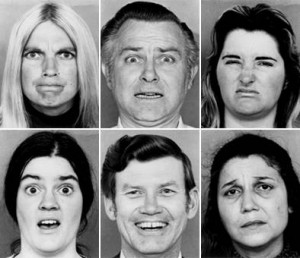Emotion Based Advertising
Humans are emotional creatures. When we’re in a bad mood, good things can seem terrible. Vice versa, when we’re on top of the world, even the most boring topic or event can seem wonderful. Microsoft has taken note of this human trait, and they want to capitalize on our emotional nature. Bill Gates’ brainchild has plans to bring the technology offered by the Kinect, facial and voice recognition technology, into our PCs to target ads to us based on how we’re feeling.
Leveling the Playing Field
A patent was recently made public outlining a system that may put Microsoft on a level playing field in the world of advertising currently dominated by Google and their AdSense program. If you aren’t familiar with AdSense, it displays targeted ads to users based on the content of the site they are currently viewing, or based on trends of sites that they themselves have recently sought out. If you look to the right of this post, you’ll see a couple of ads that a Google algorithm has customized for you.
Microsoft is upping the ante, and ushering in a new way for marketers to maximize their advertising dollar. The patented idea is for our computers to be able to simultaneously analyze our face and our voice, and provide us with ads based on our current mood. Here’s a summary from the patent document.
Patent Summary
“A computer system, a computer-implemented method, and computer readable media configured to target advertisements based on emotional states are provided. Advertisers specify desired emotional states of users they intend to target with advertisements. Advertisers also provide emotional tags having the desired emotional state of users that should see the advertisements linked to the emotional tags. Online activities for users are obtained and processed to assign emotional states to the users. An advertisement engine selects advertisements that are emotionally compatible based on the assigned emotional states and the desired emotional states provided by the advertisers.”
The Future
This technology may be the ultimate in targeted advertising, and you can bet companies will pay a pretty penny for access to this type of control. What does this mean for the future? Marketers will continue watching your every move, seeking a chance to pounce. We live in a copycat world, and it seems inevitable that the technology will continue to develop, spread and become even more invasive moving forward.
Just how far could this go? If the camera notices you’re bald, will it suggest Rogaine? If it notices that you are frequently the only person in front of the camera, will it suggest a matchmaking or friend site? How will that make us feel?
This topic brings up the issue of privacy and whether or not it will continue to exist as we move forward in the 21st century. How do you feel about being watched and recognized not only in public, but in your home as well? Can you think of any way that this trend doesn’t continue?
Comments
Tags: emotion advertising, emotion based advertising, Facial Recognition, facial recognition advertising, Voice Recognition
Trackback from your site.




Comments (2)
Maven
| #
I am not clear on whether this technology has the ability to view individuals via their computer cam or if it just tracks searches? At any rate, if may serve to make people aware of how their feeling when they notice the targeted ads and/or articles that appear for them. Personally, I do not like being tracked, if you can’t have privacy at home where can you have privacy? What is this? The Truman Show?
Reply
Kate
| #
Nope. THIS IS AMERICA! Welcome to big brother my friend. better book a flight to Canada
Reply